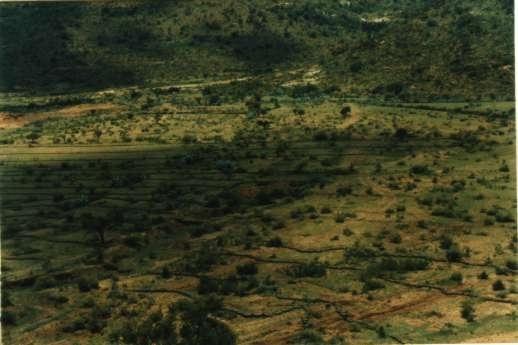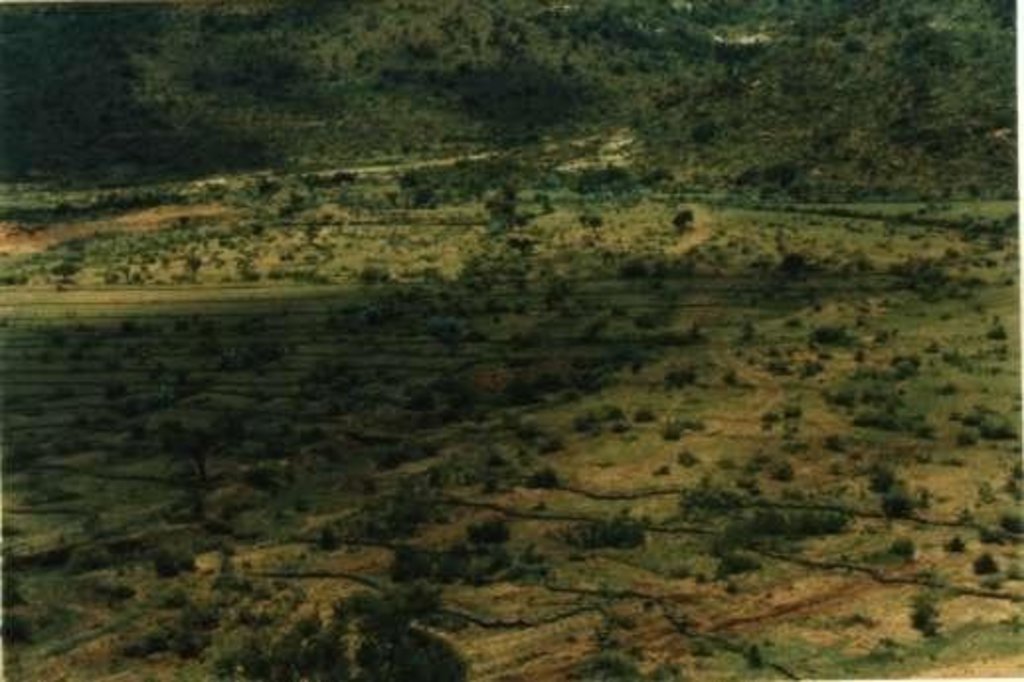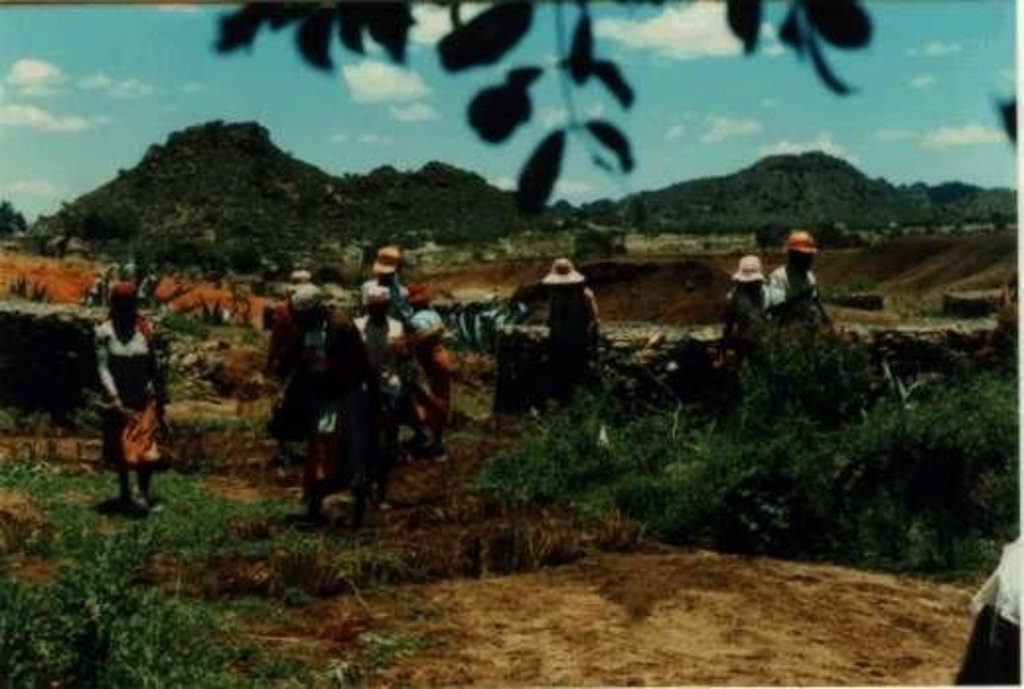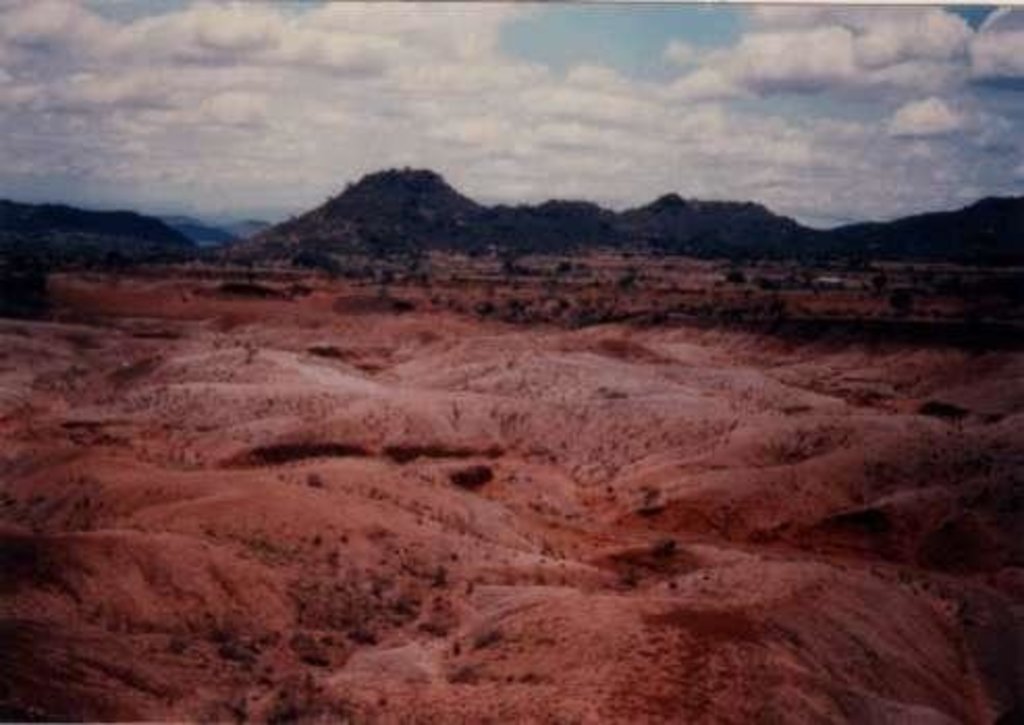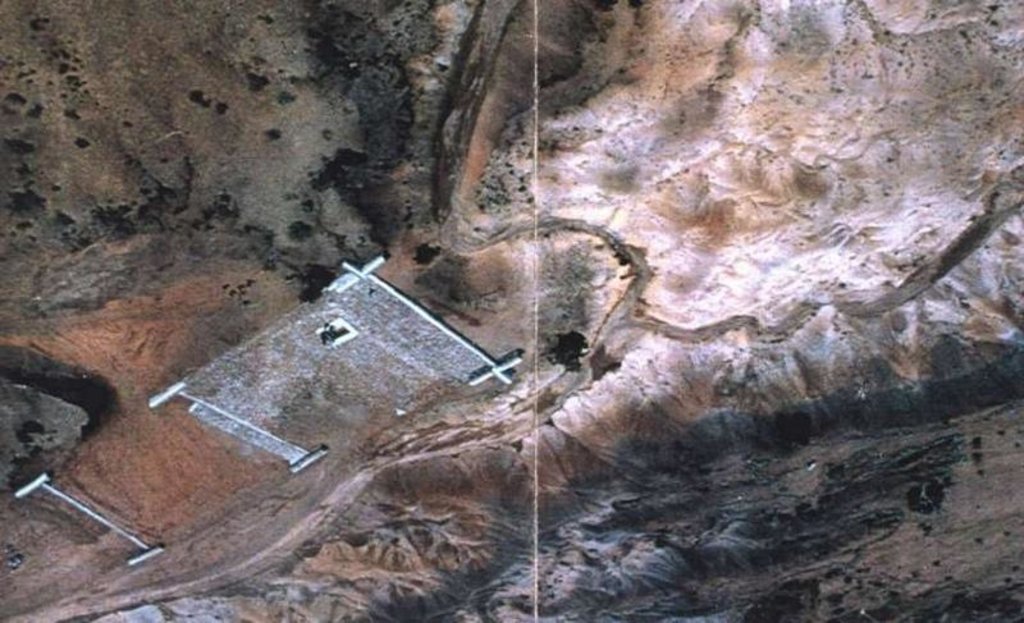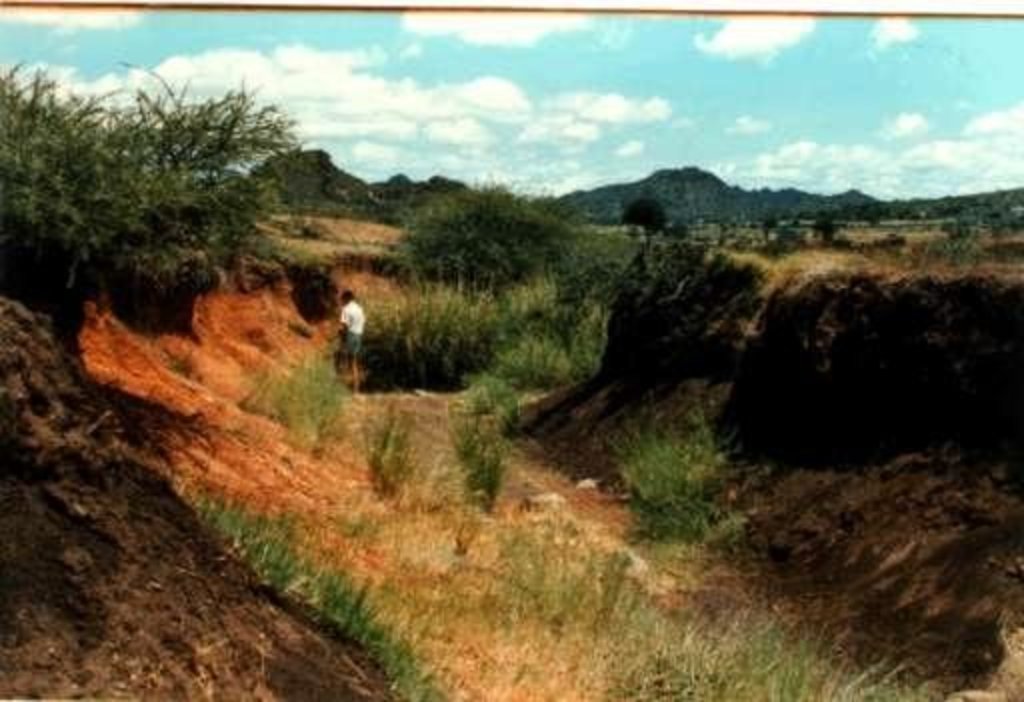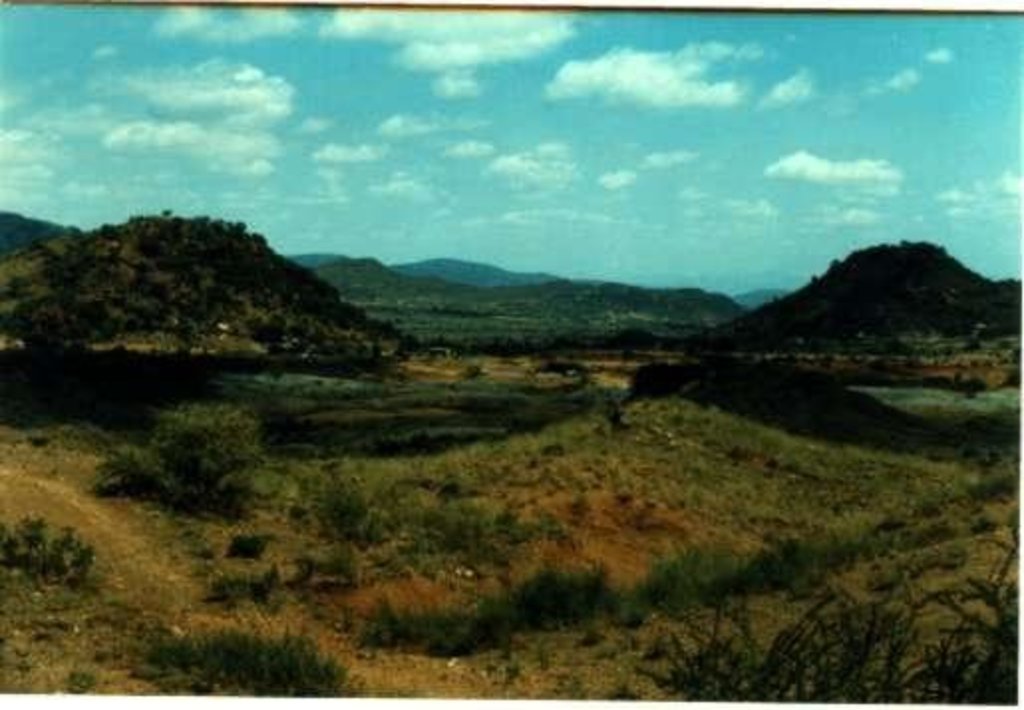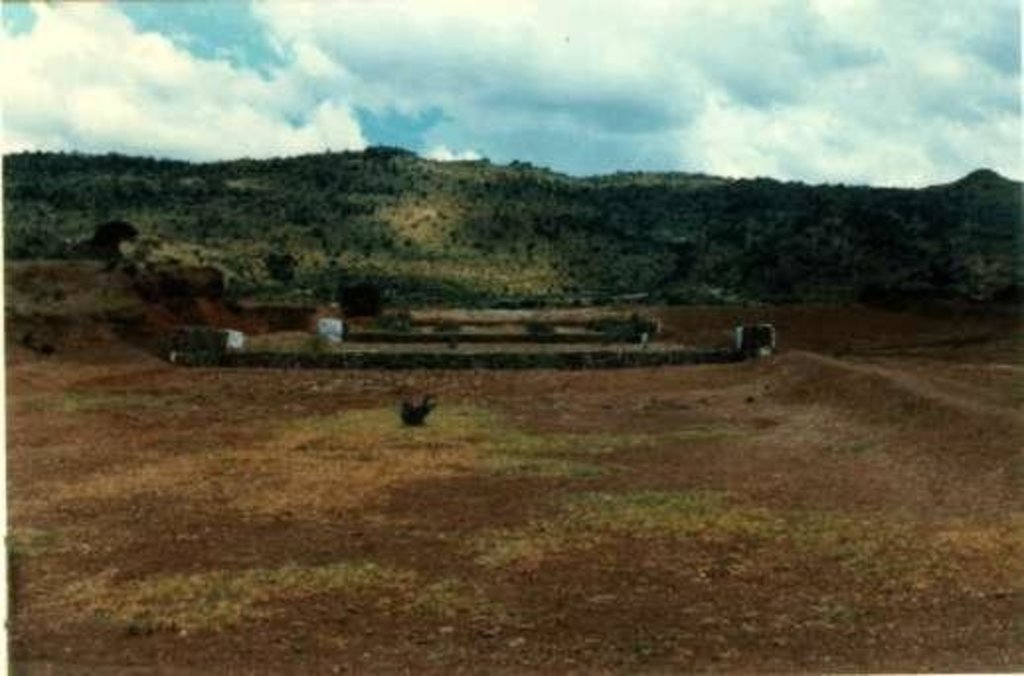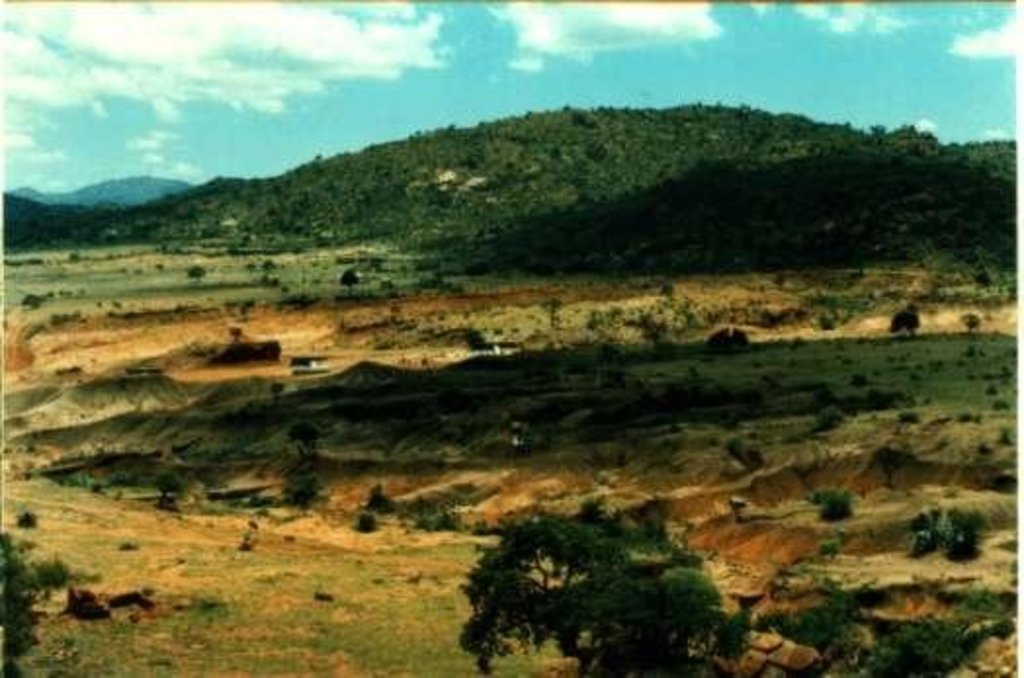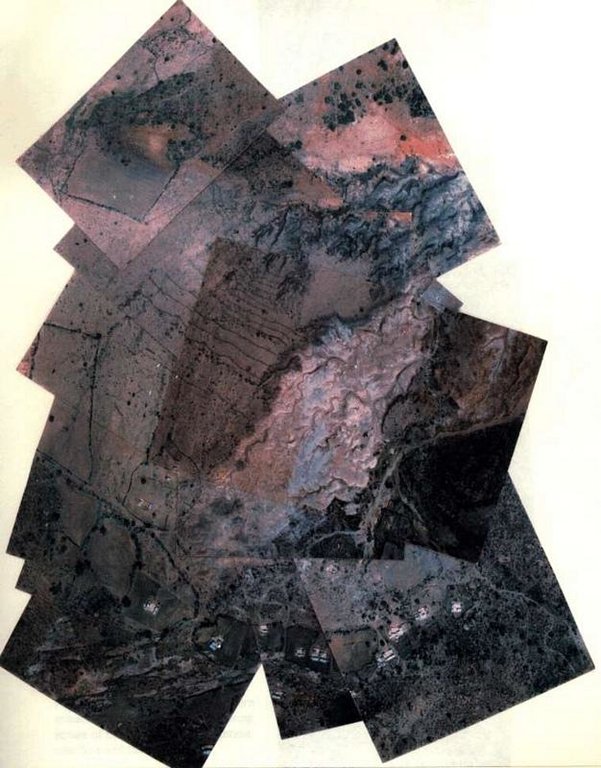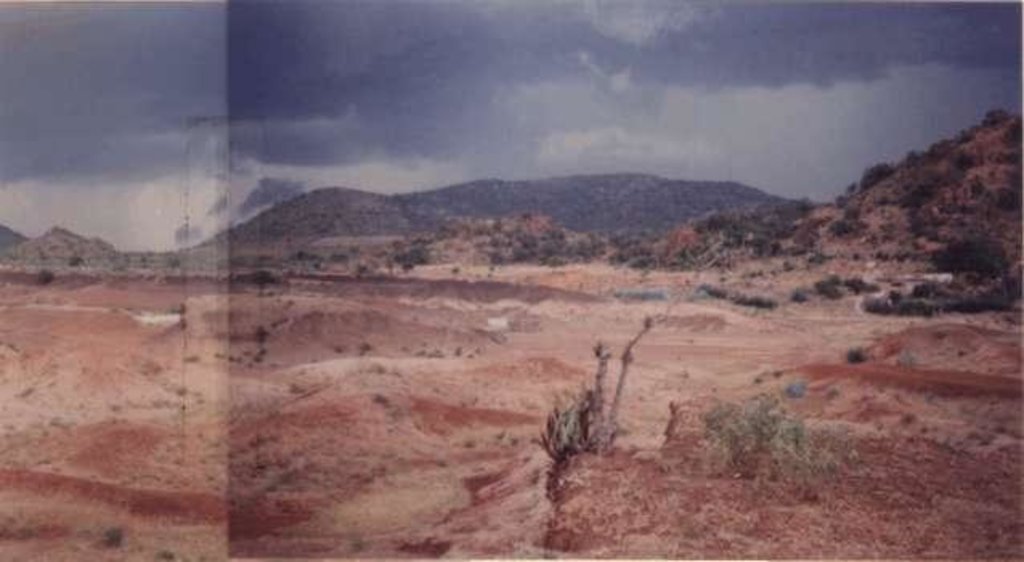Old Motor Tyre Contours [แอฟริกาใต้]
- ผู้สร้างสรรค์:
- การอัพเดท:
- ผู้รวบรวม: Andrei Rozanov
- ผู้เรียบเรียง: –
- ผู้ตรวจสอบ: David Streiff, Alexandra Gavilano
technologies_1368 - แอฟริกาใต้
ดูส่วนย่อย
ขยายทั้งหมด ย่อทั้งหมด1. ข้อมูลทั่วไป
1.2 รายละเอียดที่ติดต่อได้ของผู้รวบรวมและองค์กรที่เกี่ยวข้องในการประเมินและการจัดเตรียมทำเอกสารของเทคโนโลยี
ผู้เชี่ยวชาญ SLM:
Cujisi K.
UNIN
Van der Walt Isac
Forestry technician:
Voster T.
Department Water Affairs & Forestry, Groblersdal, South Africa
แอฟริกาใต้
ชื่อขององค์กรซึ่งอำนวยความสะดวกในการทำเอกสารหรือการประเมินเทคโนโลยี (ถ้าเกี่ยวข้อง)
University of Stellenbosch (University of Stellenbosch) - แอฟริกาใต้ชื่อขององค์กรซึ่งอำนวยความสะดวกในการทำเอกสารหรือการประเมินเทคโนโลยี (ถ้าเกี่ยวข้อง)
United Nations Institute for Namibia (UNIN) - นามิเบียชื่อขององค์กรซึ่งอำนวยความสะดวกในการทำเอกสารหรือการประเมินเทคโนโลยี (ถ้าเกี่ยวข้อง)
Department of Water Affairs and Forestry (DWAF) - แอฟริกาใต้1.3 เงื่อนไขการใช้ข้อมูลที่ได้บันทึกผ่านทาง WOCAT
ผู้รวบรวมและวิทยากรหลักยอมรับเงื่อนไขเกี่ยวกับการใช้ข้อมูลที่ถูกบันทึกผ่านทาง WOCAT:
ใช่
1.5 Reference to Questionnaire(s) on SLM Approaches (documented using WOCAT)

Assistance to community [แอฟริกาใต้]
Community requested assistance to combat soil erosion, only possible when 'Drought Relief Funds' became available.
- ผู้รวบรวม: Philippe Zahner
2. การอธิบายลักษณะของเทคโนโลยี SLM
2.1 การอธิบายแบบสั้น ๆ ของเทคโนโลยี
คำจำกัดความของเทคโนโลยี:
Old motor tyres and/or vegetation along contours.
2.2 การอธิบายแบบละเอียดของเทคโนโลยี
คำอธิบาย:
The site of Geen Einde is typical of many areas in Lebowa: a large gully approximately 200 m wide and 10 m deep in places with semi-eroded pedestals remaining. Flood waters from the mountain meanders causes further gouging of the sides of the pedestals. Tributary gullies have formed in the highly erodible soil (high clay content) adjacent to the main gully. Signs of old contour bunds indicate that the land was cultivated in the past.
1. An earth silt dam was mechanically constructed across the main erosion gully.
2. Several gabion structures were constructed in the minor gullies.
3. Vetiver grass was planted in the silt to act as nursery material for future planting.
4. Old motor tyres were laid on a level contour above the minor gullies to harvest water.
5. Several species of indigenous trees were planted in the gullies and along the rows of tyres.
6. Two Agave species, local aloes and vetiver grass were planted along level contours.
7. Agave was planted along the edges of the gullies.
8. Shallow gullies were stabilised with old tyres and Agave.
9. Couch grass (Cynodon dactylon) was planted at a few places in the gullies and along the rows of tyres.
The main reason for these actions was to reduce the water velocity.
2.3 รูปภาพของเทคโนโลยี
2.5 ประเทศภูมิภาค หรือสถานที่ตั้งที่เทคโนโลยีได้นำไปใช้และได้รับการครอบคลุมโดยการประเมินนี้
ประเทศ:
แอฟริกาใต้
ภูมิภาค/รัฐ/จังหวัด:
Limpopo Province
ข้อมูลจำเพาะเพิ่มเติมของสถานที่ตั้ง :
Sekhukhunenland
ระบุการกระจายตัวของเทคโนโลยี:
- กระจายไปอย่างสม่ำเสมอในพื้นที่
If the Technology is evenly spread over an area, specify area covered (in km2):
0.1
If precise area is not known, indicate approximate area covered:
- 0.1-1 ตร.กม.
แสดงความคิดเห็น:
Total area covered by the SLM Technology is 0.1 km2.
Green Einde is a tribal area in Sekhukhuneland, which is one of the most severely degraded areas in the Northern Province. It is mainly mountainous, with numerous fertile valleys draining into the Oilfants river, one of the main rivers leading into the Kruger National Park.
Sekhukhuneland is severely degraded. A soil degradation survey done of the former Homeland, Lebowa, by satellite remote sensing in 1993, revealed that in Sekhukhuneland alone approximately 16800ha has become an erosion gully, or bare soil, with little or no vegetation.
This means that 3360 potential farmers have effectively been deprived of 5ha each.
2.6 วันที่การดำเนินการ
ถ้าไม่รู้ปีที่แน่นอน ให้ระบุวันที่โดยประมาณ:
- น้อยกว่า 10 ปี (ไม่นานนี้)
2.7 คำแนะนำของเทคโนโลยี
ให้ระบุว่าเทคโนโลยีถูกแนะนำเข้ามาอย่างไร:
- ในช่วงการทดลองหรือการทำวิจัย
ความคิดเห็น (ประเภทของโครงการ เป็นต้น) :
Having read about the success achieved by placing stone barriers on a level contour in other parts of Africa, but also being aware that the process is slow and laborious and dependent on the availability of stones, the thought come to mind to use old motor tyres instead.
First in the area (my original idea).
3. การจัดประเภทของเทคโนโลยี SLM
3.1 วัตถุประสงค์หลักของเทคโนโลยี
- ลด ป้องกัน ฟื้นฟู การเสื่อมโทรมของที่ดิน
3.2 ประเภทของการใช้ที่ดินในปัจจุบันที่ได้นำเทคโนโลยีไปใช้
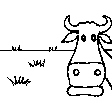
ทุ่งหญ้าเลี้ยงสัตว์
Extensive grazing:
- กึ่งโนแมนดิซึ่มหรือแพสโตแรลลิซึ่ม (Semi-nomadism/pastoralism)
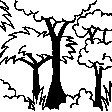
ป่า/พื้นที่ทำไม้
- ป่ากึ่งธรรมชาติ / พื้นที่ทำไม้
- ป่า/พื้นที่ทำไม้
(Semi-)natural forests/ woodlands: Specify management type:
- การตัดไม้ที่มีคัดเลือก (Selective felling)
- การตัดหมด (Clear felling)
ผลิตภัณฑ์และบริการ:
- ไม้ที่นำมาทำเป็นเชื้อเพลิง
- ผลิตภัณฑ์อื่น ๆ จากป่า
- การแทะเล็มหญ้า / การเก็บกินหญ้า
แสดงความคิดเห็น:
Major land use problems (compiler’s opinion): Severe environmental degradation (less graze cover over grazing, considerable silt in the river going into Olifants river a main resource for Kruger National Park, below gabion construction were silted up in one year (some even in one rainstorm).
Major land use problems (land users’ perception): Poverty, land tenure free range for the whole community
Semi-nomadism / pastoralism: Yes
Grazingland comments: The area was not fenced off at all.
Selective felling of (semi-) natural forests: Yes
Clear felling of (semi-)natural forests: one of the reason for erosion
Problems / comments regarding forest use: So far only indigenous trees have been planted, but there are many exotic species that can also be investigated. For example, the carob can be tried as a commercial crop, the mulberry as a fodder and fruit crop.
Forest products and services: fuelwood, grazing / browsing, other forest products / uses (honey, medical, etc.)
Type of grazing system comments: The area was not fenced off at all.
Constraints of settlement / urban: scattered
Number of growing seasons per year: 1
Longest growing period in days: 210
3.5 กลุ่ม SLM ที่ตรงกับเทคโนโลยีนี้
- มาตรการปลูกพืชขวางความลาดชัน (cross-slope measure)
- การเก็บเกี่ยวน้ำ
3.6 มาตรการ SLM ที่ประกอบกันเป็นเทคโนโลยี
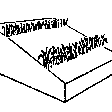
มาตรการอนุรักษ์ด้วยวิธีพืช
- V2: หญ้าและไม้ยืนต้น
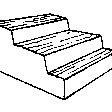
มาตรการอนุรักษ์ด้วยโครงสร้าง
- S5: เขื่อน ชั้นดินที่แน่นแข็งบ่อน้ำ
แสดงความคิดเห็น:
Main measures: structural measures
Secondary measures: vegetative measures
3.7 รูปแบบหลักของการเสื่อมโทรมของที่ดินที่ได้รับการแก้ไขโดยเทคโนโลยี

การกัดกร่อนของดินโดยน้ำ
- Wt (Loss of topsoil): การสูญเสียดินชั้นบนหรือการกัดกร่อนที่ผิวดิน
- Wg (Gully erosion): การกัดกร่อนแบบร่องธารหรือการทำให้เกิดร่องน้ำเซาะ
3.8 การป้องกัน การลดลง หรือการฟื้นฟูความเสื่อมโทรมของที่ดิน
ระบุเป้าหมายของเทคโนโลยีกับความเสื่อมโทรมของที่ดิน:
- ป้องกันความเสื่อมโทรมของที่ดิน
- ลดความเสื่อมโทรมของดิน
แสดงความคิดเห็น:
Secondary goals: mitigation / reduction of land degradation
4. ข้อมูลจำเพาะด้านเทคนิค กิจกรรมการนำไปปฏิบัติใช้ ปัจจัยนำเข้า และค่าใช้จ่าย
4.1 แบบแปลนทางเทคนิคของเทคโนโลยี
ข้อมูลจำเพาะด้านเทคนิค (แบบแปลนทางเทคนิคของเทคโนโลยี):
Technical knowledge required for field staff / advisors: moderate
Technical knowledge required for land users: low
Main technical functions: improvement of ground cover, increase in organic matter, water harvesting / increase water supply
Secondary technical functions: increase of infiltration, increase / maintain water stored in soil
Vegetative measure: contour
Vegetative material: O : other
Vertical interval within rows / strips / blocks (m): 10cm
Vegetative measure: contour
Vegetative material: O : other
Vertical interval within rows / strips / blocks (m): 1m
Vegetative measure: contour
Vegetative material: O : other
Vertical interval within rows / strips / blocks (m): 20cm
Vegetative measure: contour
Vegetative material: O : other
Trees/ shrubs species: Agave sisalana & Agave mexicane
Grass species: Vetiver
Other species: Acacia tortilis, Portulacaria afra
Slope (which determines the spacing indicated above): 1.00%
If the original slope has changed as a result of the Technology, the slope today is (see figure below): 1.00%
Gradient along the rows / strips: 1.00%
Retention/infiltration ditch/pit, sediment/sand trap
Spacing between structures (m): 10-30
Depth of ditches/pits/dams (m): 30cm
Width of ditches/pits/dams (m): 50cm
Length of ditches/pits/dams (m): 200m
Construction material (other): old motor tyres
Lateral gradient along the structure: 1%
For water harvesting: the ratio between the area where the harvested water is applied and the total area from which water is collected is: 1:30
Vegetation is used for stabilisation of structures.
Control / change of species composition
4.2 ข้อมูลทั่วไปเกี่ยวกับการคำนวณปัจจัยนำเข้าและค่าใช้จ่าย
อื่นๆ หรือสกุลเงินประจำชาติ (ระบุ):
rand
If relevant, indicate exchange rate from USD to local currency (e.g. 1 USD = 79.9 Brazilian Real): 1 USD =:
6.0
ระบุค่าเฉลี่ยของค่าจ้างในการจ้างแรงงานต่อวัน:
4.00
4.3 กิจกรรมเพื่อการจัดตั้ง
| กิจกรรม | Timing (season) | |
|---|---|---|
| 1. | transplanting Vetiver and trees | before rains - ongoing |
| 2. | planting Agave | all year round |
| 3. | 1. placing motor tyres and earth | ok-ap (rainseason) |
4.4 ค่าใช้จ่ายของปัจจัยนำเข้าที่จำเป็นสำหรับการจัดตั้ง
| ปัจจัยนำเข้า | หน่วย | ปริมาณ | ค่าใช้จ่ายต่อหน่วย | ค่าใช้จ่ายทั้งหมดต่อปัจจัยนำเข้า | %ของค่าใช้จ่ายที่ก่อให้เกิดขึ้นโดยผู้ใช้ที่ดิน | |
|---|---|---|---|---|---|---|
| แรงงาน | Labour | ha | 1.0 | 83.35 | 83.35 | |
| อุปกรณ์ | Machine use | ha | 1.0 | 11.0 | 11.0 | |
| วัสดุด้านพืช | Trees | ha | 1.0 | 888.0 | 888.0 | |
| อื่น ๆ | tyre transport | ha | 1.0 | 138.0 | 138.0 | 100.0 |
| ค่าใช้จ่ายทั้งหมดของการจัดตั้งเทคโนโลยี | 1120.35 | |||||
| Total costs for establishment of the Technology in USD | 186.72 | |||||
แสดงความคิดเห็น:
Duration of establishment phase: 36 month(s)
4.5 การบำรุงรักษาสภาพหรือกิจกรรมที่เกิดขึ้นเป็นประจำ
| กิจกรรม | ช่วงระยะเวลา/ความถี่ | |
|---|---|---|
| 1. | pruning / trimming | need /periodically |
4.7 ปัจจัยสำคัญที่สุดที่มีผลกระทบต่อค่าใช้จ่าย
ปัจจัยสำคัญที่สุดที่มีผลกระทบต่อค่าใช้จ่ายต่างๆ:
The main expense is transporting the tyres which depends on the distance travelled.
It is obvious that any increase in the cost of labour will have a market impact on final costs.
5. สิ่งแวดล้อมทางธรรมชาติและของมนุษย์
5.1 ภูมิอากาศ
ฝนประจำปี
- < 250 ม.ม.
- 251-500 ม.ม.
- 501-750 ม.ม.
- 751-1,000 ม.ม.
- 1,001-1,500 ม.ม.
- 1,501-2,000 ม.ม.
- 2,001-3,000 ม.ม.
- 3,001-4,000 ม.ม.
- > 4,000 ม.ม.
เขตภูมิอากาศเกษตร
- กึ่งแห้งแล้ง
thunderstorm
5.2 สภาพภูมิประเทศ
ค่าเฉลี่ยความลาดชัน:
- ราบเรียบ (0-2%)
- ลาดที่ไม่ชัน (3-5%)
- ปานกลาง (6-10%)
- เป็นลูกคลื่น (11-15%)
- เป็นเนิน (16-30%)
- ชัน (31-60%)
- ชันมาก (>60%)
ธรณีสัณฐาน:
- ที่ราบสูง/ที่ราบ
- สันเขา
- ไหล่เขา
- ไหล่เนินเขา
- ตีนเนิน
- หุบเขา
ระดับความสูง:
- 0-100 เมตร
- 101-500 เมตร
- 501-1,000 เมตร
- 1,001-1,500 เมตร
- 1,501-2,000 เมตร
- 2,001-2,500 เมตร
- 2,501-3,000 เมตร
- 3,001-4,000 เมตร
- > 4,000 เมตร
5.3 ดิน
ค่าเฉลี่ยความลึกของดิน:
- ตื้นมาก (0-20 ซ.ม.)
- ตื้น (21-50 ซ.ม.)
- ลึกปานกลาง (51-80 ซ.ม.)
- ลึก (81-120 ซ.ม.)
- ลึกมาก (>120 ซ.ม.)
เนื้อดิน (ดินชั้นบน):
- ละเอียด/หนัก (ดินเหนียว)
อินทรียวัตถุในดิน:
- ต่ำ (<1%)
(ถ้ามี) ให้แนบคำอธิบายเรื่องดินแบบเต็มหรือระบุข้อมูลที่มีอยู่ เช่น ชนิดของดิน ค่า pH ของดินหรือความเป็นกรดของดิน ความสามารถในการแลกเปลี่ยนประจุบวก ไนโตรเจน ความเค็ม เป็นต้น:
Soil depth on average: Also shallow
Soil fertility is low - very low
Soil drainage / infiltration is poor
Soil water storage capacity is low - medium
5.6 ลักษณะของผู้ใช้ที่ดินที่นำเทคโนโลยีไปปฏิบัติใช้
แนวทางการตลาดของระบบการผลิต:
- เพื่อการยังชีพ (หาเลี้ยงตนเอง)
รายได้ที่มาจากนอกฟาร์ม:
- < 10% ของรายได้ทั้งหมด
ระดับของความมั่งคั่งโดยเปรียบเทียบ:
- ยากจนมาก
- จน
ระบุลักษณะอื่นๆที่เกี่ยวข้องของผู้ใช้ที่ดิน:
Population density: 10-50 persons/km2
Annual population growth: 0.5% - 1%
(other income (e.g. bottle store)).
Off-farm income specification: Pension very important
Market orientation of production system: Probable, no sure if on market
5.7 Average area of land used by land users applying the Technology
- < 0.5 เฮกตาร์
- 0.5-1 เฮกตาร์
- 1-2 เฮกตาร์
- 2-5 เฮกตาร์
- 5-15 เฮกตาร์
- 15-50 เฮกตาร์
- 50-100 เฮกตาร์
- 100-500 เฮกตาร์
- 500-1,000 เฮกตาร์
- 1,000-10,000 เฮกตาร์
- >10,000 เฮกตาร์
5.8 กรรมสิทธิ์ในที่ดิน สิทธิในการใช้ที่ดินและสิทธิในการใช้น้ำ
กรรมสิทธิ์ในที่ดิน:
- เป็นแบบชุมชนหรือหมู่บ้าน
สิทธิในการใช้ที่ดิน:
- เข้าถึงได้แบบเปิด (ไม่ได้จัดระเบียบ)
6. ผลกระทบและสรุปคำบอกกล่าว
6.1 ผลกระทบในพื้นที่ดำเนินการ (On-site) จากการใช้เทคโนโลยี
ผลกระทบทางด้านเศรษฐกิจและสังคม
การผลิต
การผลิตพืชที่ใช้เลี้ยงปศุสัตว์
คุณภาพพืชที่ใช้เลี้ยงปศุสัตว์
การผลิตไม้
พื้นที่สำหรับการผลิต
แสดงความคิดเห็น/ระบุ:
stabilised gullies can be used for production, in Lesotho such gullies are allocated
รายได้และค่าใช้จ่าย
รายได้จากฟาร์ม
ความเหลื่อมล้ำทางเศรษฐกิจ
ภาระงาน
ผลกระทบทางด้านเศรษฐกิจและสังคมอื่น ๆ
initial cost
แสดงความคิดเห็น/ระบุ:
relatively cheap method using old tyres and ripper, the main expense is transporting the tyres
ผลกระทบด้านสังคมวัฒนธรรมอื่น ๆ
สถาบันของชุมชน
SLM หรือความรู้เรื่องความเสื่อมโทรมของที่ดิน
การบรรเทาความขัดแย้ง
rehabilitation can take place without denying people/animal
ผลกระทบด้านนิเวศวิทยา
วัฐจักรน้ำหรือน้ำบ่า
การเก็บเกี่ยวหรือการกักเก็บน้ำ
น้ำไหลบ่าที่ผิวดิน
จำนวนก่อน SLM:
50
หลังจาก SLM:
10
การระบายน้ำส่วนเกิน
ดิน
ความชื้นในดิน
สิ่งปกคลุมดิน
การสูญเสียดิน
จำนวนก่อน SLM:
8
หลังจาก SLM:
2
ผลกระทบด้านนิเวศวิทยาอื่น ๆ
soil fertility
biodiversity
ground level
แสดงความคิดเห็น/ระบุ:
Not sure if reason is technology
6.2 ผลกระทบนอกพื้นที่ดำเนินการ (Off-site) จากการใช้เทคโนโลยี
น้ำท่วมพื้นที่ท้ายน้ำ
6.4 การวิเคราะห์ค่าใช้จ่ายและผลประโยชน์ที่ได้รับ
ผลประโยชน์ที่ได้รับเปรียบเทียบกับค่าใช้จ่ายในการจัดตั้งเป็นอย่างไร (จากมุมมองของผู้ใช้ที่ดิน)
ผลตอบแทนระยะสั้น:
ด้านบวก
ผลตอบแทนระยะยาว:
ด้านบวก
ผลประโยชน์ที่ได้รับเปรียบเทียบกับค่าใช้จ่ายในการบำรุงรักษาหรือต้นทุนที่เกิดขึ้นซ้ำอีก เป็นอย่างไร (จากมุมมองของผู้ใช้ที่ดิน)
ผลตอบแทนระยะสั้น:
เป็นกลางหรือสมดุล
ผลตอบแทนระยะยาว:
เป็นกลางหรือสมดุล
6.5 การปรับตัวของเทคโนโลยี
แสดงความคิดเห็น:
There is a moderate trend towards spontaneous adoption of the Technology
Comments on adoption trend: Interest is increasing.
6.7 จุดแข็ง / ข้อได้เปรียบ / โอกาสของเทคโนโลยี
| จุดแข็ง / ข้อได้เปรียบ / โอกาสในทัศนคติของผู้ใช้ที่ดิน |
|---|
| Easy to implement and benefits from food, fuel and fodder. |
| Improved graze cover. |
| Improved trees cover. |
| Improved trees cover. |
| จุดแข็ง / ข้อได้เปรียบ / โอกาสในทัศนคติของผู้รวบรวมหรือวิทยากรหลัก |
|---|
|
Capture water and sediment for growth of plants. How can they be sustained / enhanced? More of the same technology. |
|
Improved graze cover. How can they be sustained / enhanced? More of the same technology. |
| Improved trees cover. |
| Improved water management. |
| Improved biodiversity. |
6.8 จุดอ่อน / ข้อเสียเปรียบ / ความเสี่ยงของเทคโนโลยีและวิธีการแก้ไข
| จุดอ่อน / ข้อเสียเปรียบ / ความเสี่ยงในทัศนคติของผู้ใช้ที่ดิน | มีวิธีการแก้ไขได้อย่างไร |
|---|---|
| Paths may be blocked. | Put more soil on the tyres |
| Transport cost for tyres. |
| จุดอ่อน / ข้อเสียเปรียบ / ความเสี่ยงในทัศนคติของผู้รวบรวมหรือวิทยากรหลัก | มีวิธีการแก้ไขได้อย่างไร |
|---|---|
| Transport costs of tyres. | Selesert sponsorship. |
| Tyres all over the area may be unsightly. | Cover the tyres with soil and vegetation. |
7. การอ้างอิงและการเชื่อมต่อ
7.1 วิธีการและแหล่งข้อมูล
7.2 การอ้างอิงถึงสิ่งตีพิมพ์
หัวข้อ, ผู้เขียน, ปี, หมายเลข ISBN:
Progress Report. Feb-94.
ชื่อเรื่อง ผู้เขียน ปี ISBN:
C.W. Spies
ลิงก์และโมดูล
ขยายทั้งหมด ย่อทั้งหมดลิงก์

Assistance to community [แอฟริกาใต้]
Community requested assistance to combat soil erosion, only possible when 'Drought Relief Funds' became available.
- ผู้รวบรวม: Philippe Zahner
โมดูล
ไม่มีโมดูล


